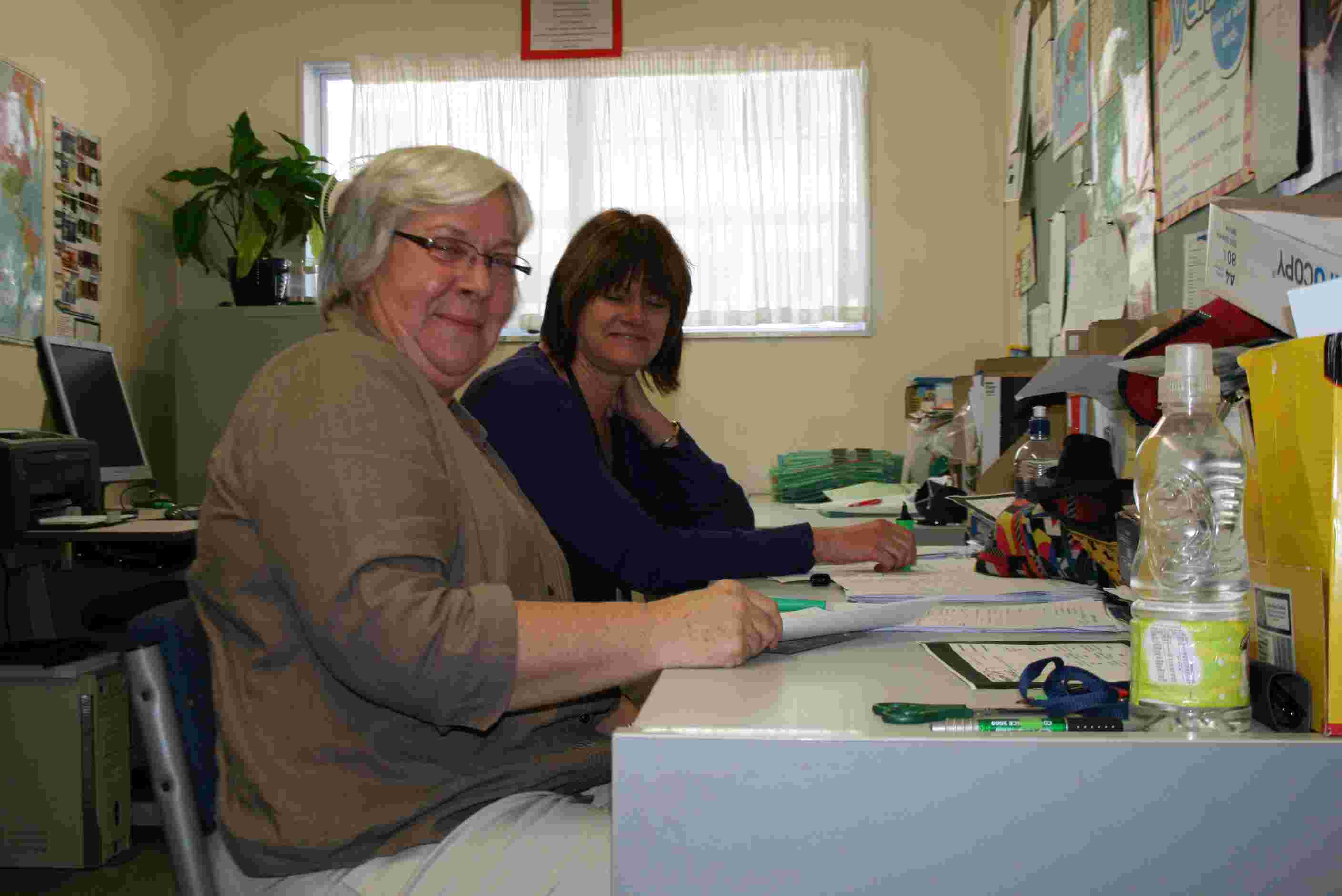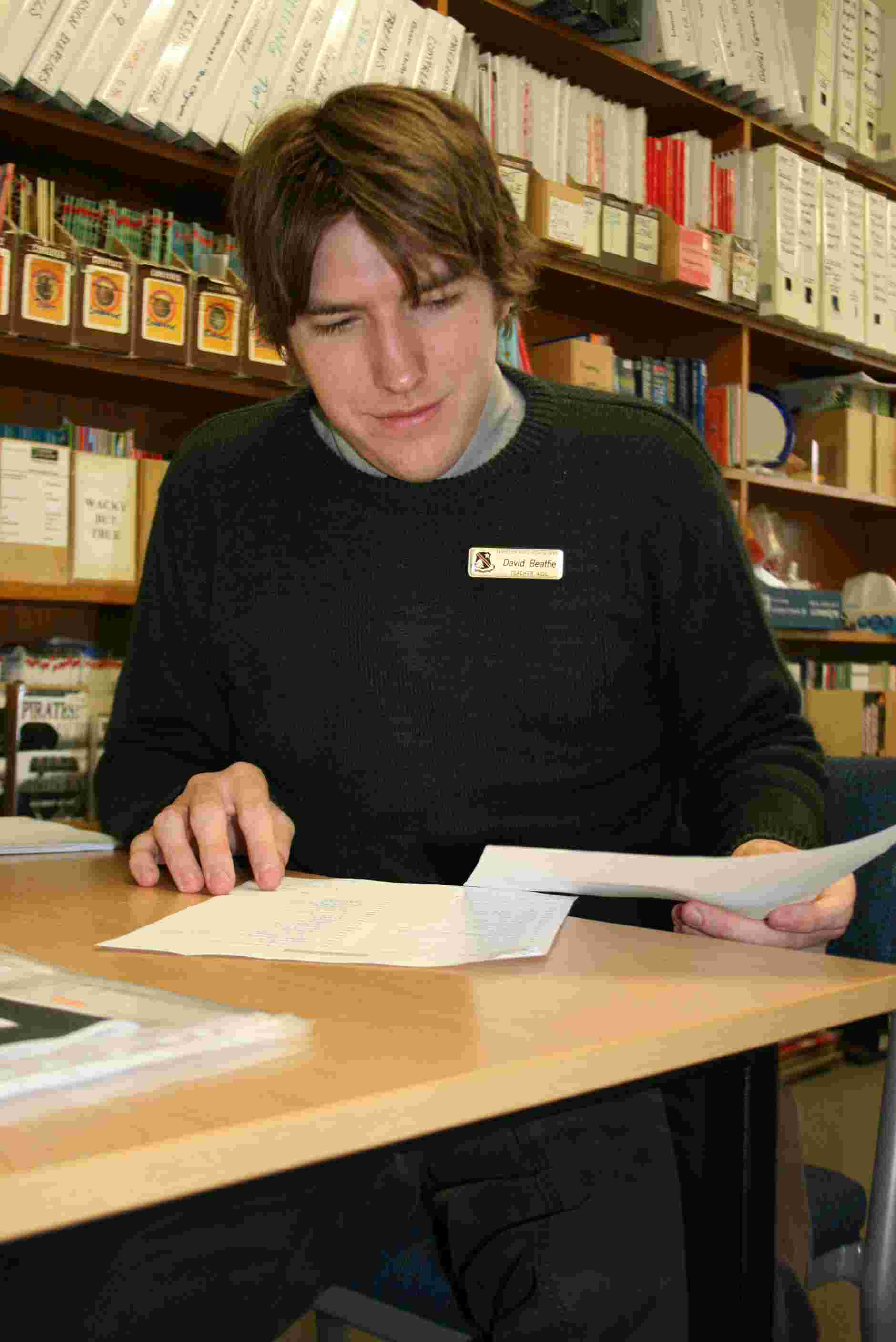Teachers' Aides: Quiet Achievers
![]()

Many staff and students at HBHS have been helped by teachers’ aides; the teachers’ aide team is dedicated, unobtrusive and crucial to the smooth functioning of our school. Mrs Sandy Scott was recently interviewed on the role of the teachers’ aide, and the contribution that they make to learning at an institution like HBHS.
How long have you been a teachers’ aide?
About fifteen years. I’ve been at Boys’ High since 1997.
Can you explain what an average teachers’ aide’s day look like?
It would be very busy. From the time that we arrive (we start at 8.45am), we do the paper work associated with each of the day’s sessions, check the timetable to make sure that we know where we are each going, gather our resources and make sure that the students involved are properly prepared. We then start with the classes.

What specific tasks are you likely to have to do on a day to day basis?
We support teachers in the classroom – it is up to the classroom teacher to decide which way the teachers’ aide will wok during each lesson. We can check homework, assist students with ideas or processing that they have difficulty with, and teach withdrawal groups if these are necessary. We often ‘translate’ or repeat what the teacher has said in a variety of different ways until the student shows understanding. Usually this is with individuals within a classroom. Note writing can be very challenging for anyone with a specific learning or processing difficulty, so we write out the board work with the students to prevent anyone with problems from falling behind. The teachers’ aide supports the students while the teacher leads the learning in the classroom. Because the range of needs amongst a cohort of learners can be so diverse, having access to a teachers’ aide in a classroom setting can make a big difference to the productivity and understanding of our students.
What is involved in the withdrawal sessions?
We target students who need extra support – often in literacy – using spelling, writing and the Burt word identification tests. The teachers’ aides have the results interpreted and then find reading material and activities appropriate to the interests and study requirements of each student. Each session is carefully planned, and involves the scaffolding of learning behaviours.
The teachers’ aide will work with one to three students at a time. Sessions often begin with a warm up activity, and then guided reading to help the students become familiar with new vocabulary and ideas in the text. Students always produce a piece of written work, and study skills and strategies are incorporated into the lesson where appropriate. The focus on study skills increases as the students move up through the school system.
We can also target specific areas like Maths or Science if the student shows an ‘unexpected’ lag in these areas in comparision to their academic progress in other areas.
What personal qualities to you need if you want to be a teachers’ aide?
You’ve got to be able to work with people across a range of different contexts. You’ve got to be quite organised, and good at planning and maintaining records. It is crucial that a teachers’ aide is patient – you must be tolerant of the different ways that students deal with learning challenges, and determined to use the time that you have with them constructively. There is a Teachers’ Aide certificate that can help people who have an interest in this area. We work hard to maintain continuity of care for students who move into the senior school. Our students still have contact with us at least once a week in Year 11+, which means that there is a strong pastoral element in what we’re doing as well. A teachers’ aide must respect the confidentiality of their students, because they see these boys in a variety of different contexts, and end up learning a great deal about them from one year to the next.
It’s a very rewarding job that can make a big difference to the lives of students who need that extra care and support. We are meeting specific needs while helping teachers to be the learning leaders in their classrooms. It’s not something we make a fuss out, but it’s good.
Back to News

